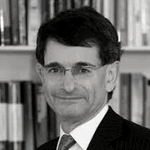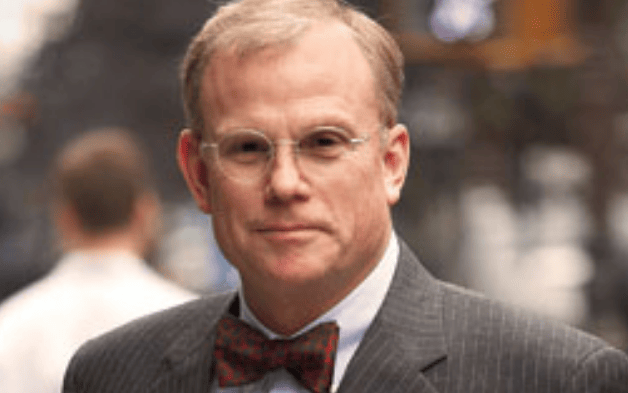Is the COVID-19 crisis the paradigm shift needed to redefine business for the 21stcentury and build trust between business and society? The crisis has hastened the trend towards ‘purpose before profit’ and the fact that purposeful companies will be the ones that thrive in the future.

Sharan Burrow
General secretary, ITUC (Belgium)
Sharan Burrow was elected general secretary of the ITUC at its second world congress in Vancouver, June 2010. Prior to this, she held the position of ITUC president since its founding congress in Vienna (November 2006) and the position of ICFTU president since its 18th World Congress in Miyazaki (November 2004). She is the first woman to have held any of these positions.
Burrow was born in 1954 in Warren, a small town in western NSW, into a family with a long history of involvement in unions and the struggle to improve the lives of working people.
Her great, great grandfather participated in the shearers’ strike of 1891/92, becoming one of the first organisers for the Australian Workers’ Union and standing for the state seat of Cobar for the fledgling Australian Labor Party in 1896.
She studied teaching at the University of NSW in 1976 and began her teaching career in high schools around country NSW. She became an organiser for the NSW Teachers’ Federation, based in Bathurst, and was president of the Bathurst Trades and Labour Council during the 1980s. Burrow was elected senior vice-president of the NSW Teachers’ Federation and became president of the Australian Education Union (AEU) in 1992. She represented the AEU on the ACTU executive through the 1990s.
Burrow was previously vice-president of Education International from 1995 to 2000. Education International is the international organisation of education unions representing 24 million members worldwide.
In May 2000, Burrow became the second woman to be elected president of the Australian Council of Trade Unions (ACTU). In October 2000, and also became the first woman to be elected president of the International Confederation of Free Trade Unions Asia Pacific Region Organisation.
She has also served as a member of the governing body of the International Labour Organisation and a member of the stakeholder council of the Global Reporting Initiative. As part of her ILO responsibilities, Burrow chaired the workers’ group of the sub-committee on multinational enterprises.
Burrow was re-elected General Secretary of the ITUC at its 3rd congress, in Berlin, May 2014 and at its 4th congress, in Copengahen, December 2018.

Colin Mayer
Professor of Management Studies, Oxford University (United Kingdom)
Colin Mayer is an expert on all aspects of corporate finance, governance and taxation, the regulation of financial institutions and the role of the corporation in contemporary society.
He teaches the elective course on mergers, acquisitions and restructurings on the MBA and the Masters in Financial Economics, the core program on responsible business for MBA students, an elective on the nature of the corporation for MBA and Masters in Financial Economics students, and the principles of financial regulation on the Masters in Law and Finance.
Mayer studied as an undergraduate at Oriel College, Oxford, and received his DPhil from Oxford University in 1981. He was a Harkness Fellow at Harvard University, a Houblon-Norman Fellow at the Bank of England, the first Leo Goldschmidt Visiting Professor of Corporate Governance at the Solvay Business School, Université de Bruxelles, and has had visiting positions at Columbia, MIT and Stanford universities. In 1994, he became the first professor at Saïd Business School, and was appointed the Peter Moores Dean of the Business School between 2006 and 2011. He was the first director of the Oxford Financial Research Centre at the University of Oxford between 1998 and 2005.
Colin has served on the editorial boards of several leading academic journals and assisted in establishing prestigious networks of economics, law and finance academics in Europe at the Centre for Economic Policy Research and the European Corporate Governance Institute. He was a founding editor of the Oxford Review of Economic Policy and a founding co-editor of the Review of Finance.
Mayer was a director and chair of Oxera between 1986 and 2010, and was instrumental in building the firm into what is now one of the largest independent economics consultancies in Europe. He is a director of Aurora Energy Research Limited, an energy modelling company. He has consulted for numerous large corporations and for governments, regulators and international agencies around the world.
Mayer is an Honorary Fellow of Oriel College, Oxford, and St Anne’s College, Oxford, and he is a Professorial Fellow of Wadham College, Oxford. He is a Fellow of the British Academy and a Fellow of the European Corporate Governance Institute. He is an Ordinary Member of the Competition Appeal Tribunal and a trustee of the Oxford Playhouse.
Fiona Reynolds is responsible for global operations. She has more than 20 years’ experience in the pension sector, working in particular with the Australian Government, and has played a key role in advocating pension policy change on behalf of working Australians. She has a particular interest in retirement outcomes for women. Prior to joining PRI, she spent seven years as chief executive at the Australian Institute of Superannuation Trustees, an association for Australian asset owners. Reynolds has been a director of AUSfund, Industry Funds Credit Control, the United Nations High Commissioner for Refugees, and Women in Super. In September 2012, she was named one of Australia’s top 100 women of influence by the Australian Financial Review, for her work in public policy. Reynolds also serves on the International Integrated Reporting Council, the council for Tomorrow’s Company, the Global Advisory Council on Stranded Assets at Oxford University, and the Business for Peace steering committee.
Colin Tate has been an investment industry media publisher and conference producer since 1996. In his media career, Tate has launched and overseen dozens of print and electronic publications. He is the chief executive and major shareholder of Conexus Financial, which was formed in 2005, and is headquartered in Sydney, Australia. The company stages more than 20 conferences and events each year – in London, New York, San Francisco, Los Angeles, Amsterdam, Beijing, Sydney and Melbourne – and publishes five media brands, including the global website and strategy newsletter for global institutional investors conexust1f.flywheelstaging.com. One of the company’s signature events is the bi-annual Fiduciary Investors Symposium. Conexus Financial’s events aim to place the responsibilities of investors in wider societal, and political contexts, as well as promote the long-term stability of markets and sustainable retirement incomes. Tate served for seven years on the board of Australia’s most high profile homeless charity, The Wayside Chapel; and he has underwritten the welfare of 60,000 people in 28 villages throughout Uganda via The Hunger Project.
Key takeaways
Sharan
- Signing the statement of purposeful companies is not enough. We need to make it work.
- 6 billion workers are facing destitution in the informal working environment.
- Corporate social responsibility is nonsense. It’s not enough.
- Let’s make the transition to a world where everybody’s rights matter.
Colin
- Purpose can play a vital role in steering companies through the crisis and safely out to the other side. Purpose is about solving the problems that individuals, society and the natural world face.
- Purpose gives psychological benefit to employees at a difficult time. Purpose makes companies more resilient and helps reduce risk.
- Technology increasingly helps use find new measures for what ‘purposeful’ means.
- A purpose statement is profoundly different from a mission statement. A purpose statement in a North Star.
- Integrated reporting is a very important step forward.
Fiona
- A lot of investors still think about ESG investment only in risk/return terms. The value of impact needs to be incorporated.
- We need between 10 and 20 trillion dollars to fund the recovery, so we cannot rely only on government for a better future.
- Stewardship is one of the most powerful tools investors have but we are underinvesting in it (.7 per cent per USD$100bn AUM).
- We must be able to measure both the financial and sustainability impacts of investments.





